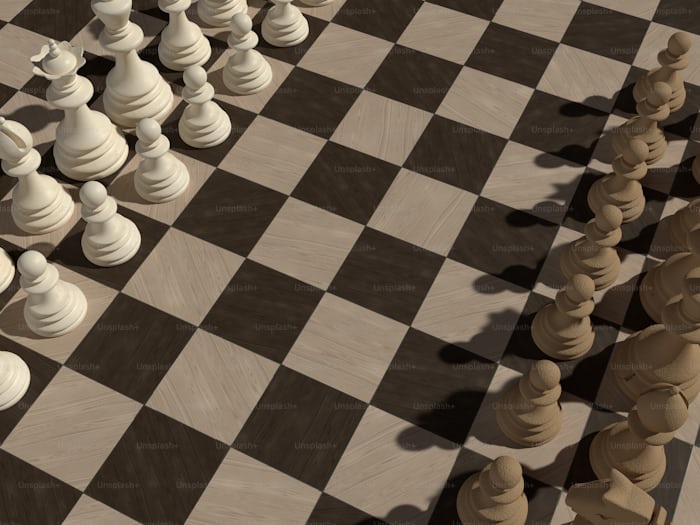Legal disputes between universities and their faculty or students are not uncommon, but few have captured attention like the C.W. Park USC lawsuit. This case, involving a prominent professor and one of the top private universities in the United States, has brought up important questions about institutional responsibility, academic freedom, and the treatment of faculty within elite educational institutions. The lawsuit underscores the often complex relationship between universities and their academic staff, sparking discussions that go beyond the courtroom and into the broader academic community.
Background of the C.W. Park USC Lawsuit
The legal battle between C.W. Park and the University of Southern California (USC) traces its origins to grievances that Park, a distinguished faculty member, had with the university. Professor C.W. Park is a well-known academic figure, particularly in the fields of business and marketing, with a long career marked by numerous contributions to his field. However, the relationship between Park and USC began to deteriorate, culminating in the filing of a lawsuit that has since garnered significant media attention.
At the core of the C.W. Park USC lawsuit are allegations of wrongful treatment by the university. Park has accused USC of violating various contractual and employment obligations, which he claims has damaged both his career and reputation. The lawsuit raises key concerns about how faculty members, particularly those with decades of experience, are treated within large institutions like USC, especially when disputes arise over issues like compensation, tenure, and intellectual property.
Key Issues in the C.W. Park USC Lawsuit
Several critical issues form the foundation of the C.W. Park USC lawsuit. Each of these factors sheds light on broader systemic problems within academia, making the case not just a personal grievance but also a representation of wider institutional challenges.
1. Breach of Contract
One of the central allegations in the lawsuit is a breach of contract. C.W. Park claims that USC failed to uphold the terms of his employment agreement, including those relating to his salary, job duties, and academic autonomy. In academic settings, contracts often serve as a critical tool in protecting the rights and expectations of faculty members. If USC indeed violated its agreement with Park, it would represent a significant failure in maintaining ethical employment practices.
The breach of contract claim also touches on broader concerns about transparency and fairness in university governance. Faculty contracts often come with detailed stipulations, and violations of these terms can lead to diminished trust between academic staff and university administration.
2. Retaliation and Unlawful Treatment
Another crucial aspect of the lawsuit involves accusations of retaliation and unlawful treatment. Park alleges that after raising concerns and questioning certain practices at USC, he was subjected to retaliatory actions that impacted his standing within the university. Retaliation claims are serious in any employment context, but they carry particular weight within academic institutions, where freedom of expression and dissent are supposed to be fundamental principles.
Retaliation in the form of demotions, denial of resources, or damage to professional reputation can have long-lasting effects on a faculty member’s career. Park’s accusations of retaliatory behavior raise questions about USC’s internal processes for handling disputes and whether the institution fosters an environment that encourages open dialogue or, conversely, punishes dissent.
3. Academic Freedom
Academic freedom is a central tenet of higher education, allowing scholars to pursue research and express ideas without fear of censorship or retribution. Park’s lawsuit raises concerns about whether USC infringed upon his academic freedom by imposing constraints on his research, teaching, or public statements.
Academic freedom is vital for the advancement of knowledge and the fostering of intellectual diversity. If the allegations in the C.W. Park USC lawsuit are substantiated, they would suggest that even prestigious universities may struggle to uphold this essential principle, especially when internal conflicts arise.
4. Discrimination Claims
Another component of the lawsuit involves claims of discrimination. Park asserts that he was treated unfairly based on certain characteristics, which may include factors such as age, race, or other protected statuses. Discrimination within universities is a significant issue, as these institutions are expected to be leaders in promoting equity, inclusion, and diversity.
If proven, Park’s claims of discrimination would highlight a failure in USC’s commitment to providing a fair and unbiased work environment for all employees, regardless of their background. Such allegations can also have broader implications for the university’s reputation and its ability to attract top academic talent in the future.
USC’s Response to the Lawsuit
The University of Southern California has denied many of the allegations made by C.W. Park, stating that the lawsuit is without merit and that the university acted in accordance with its policies and contractual obligations. USC’s legal team has emphasized that the institution values its faculty and works diligently to ensure that disputes are handled fairly and transparently.
USC has a vested interest in protecting its reputation, especially given its standing as a leading research university with a global reputation. As the legal process unfolds, USC will likely continue to defend its actions while seeking to limit any potential damage to its public image. However, the case’s high-profile nature means that any missteps could lead to lasting reputational harm.
The Broader Implications of the C.W. Park USC Lawsuit
While the C.W. Park USC lawsuit is a personal legal battle between an individual and an institution, its implications extend far beyond the parties involved. The case has sparked discussions within academic circles about how universities handle internal conflicts, particularly when those conflicts involve senior faculty members with established careers.
1. Faculty Rights and Institutional Power
One of the most significant implications of the lawsuit is the broader conversation it has ignited about faculty rights in the face of institutional power. Universities often wield considerable influence over the careers of their faculty, controlling decisions related to promotion, tenure, research funding, and professional development. When disputes arise, faculty members may find themselves at a disadvantage, facing an institution with greater resources and legal leverage.
The C.W. Park USC lawsuit has brought attention to the need for more robust protections for faculty members, particularly in cases where power imbalances may exist. Advocates for academic reform argue that universities should establish clearer and more transparent processes for resolving disputes, ensuring that faculty members’ rights are adequately protected.
2. Transparency and Accountability in University Governance
The case also highlights the importance of transparency and accountability within university governance structures. Large universities like USC are complex organizations with multiple layers of administration, and disputes can sometimes reveal flaws in how decisions are made and communicated. Greater transparency in the handling of faculty contracts, grievances, and disputes could help prevent legal battles like the one involving C.W. Park.
3. Impact on University Reputation

For USC, the lawsuit represents a potential threat to its reputation as a world-class institution. High-profile legal disputes can damage a university’s standing in the academic community and among prospective students and faculty. The outcome of the C.W. Park USC lawsuit may have lasting consequences for the university’s image, depending on how the case is resolved and whether it leads to changes in institutional practices.
Conclusion
The C.W. Park USC lawsuit is a complex and multifaceted legal battle that raises important questions about the relationship between universities and their faculty members. As the case unfolds, it will likely continue to draw attention from both the legal and academic communities, potentially setting a precedent for how similar disputes are handled in the future. At its core, the lawsuit underscores the need for fairness, transparency, and accountability in university governance, ensuring that faculty members like C.W. Park are treated with the respect and professionalism they deserve.





